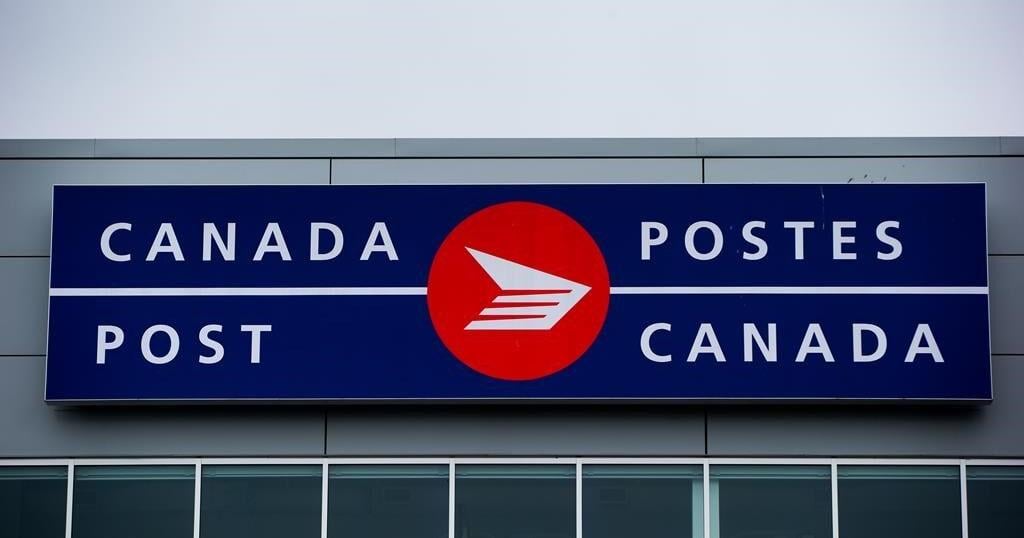MONTREAL – A battle is heating up between Pierre Poilievre and Jagmeet Singh ahead of the return of the House of Commons next week, as the Conservatives challenge the NDP to help them bring down the government.
Singh said Wednesday he won’t be taking advice from Poilievre, while sidestepping questions about whether the NDP would vote in favour of a non-confidence motion, as Poilievre challenged him to do.
“I say directly to Pierre Poilievre: I’m not going to listen to you,” said Singh, accusing Poilievre of wanting to take away dental-care coverage from Canadians, among other things.
“I’m not going to listen to your advice. You want to destroy people’s lives, I want to build up a brighter future.”
Earlier in the day, Poilievre pledged to bring forward a non-confidence motion in the Liberal government “at the earliest possible opportunity” in the House of Commons — and he directly challenged Singh to vote with him.
“I’m asking Jagmeet Singh and the NDP to commit unequivocally before Monday’s byelections: will they vote non-confidence to bring down the costly coalition and trigger a carbon tax election, or will Jagmeet Singh sell out Canadians again?” Poilievre said.
“It’s put up or shut up time for the NDP.”
A non-confidence motion would likely trigger an early election, if the majority of MPs vote in favour of it. Parliament’s fall sitting begins Sept. 16, which will be the first opportunity for the Conservatives to introduce such a motion.
While Singh rejected the idea he would ever listen to Poilievre, he did not say for certain how the NDP would vote.
“I’ve said on any vote, we’re going to look at the vote and we’ll make our decision. I’m not going to say our decision ahead of time,” he said.
Singh’s top adviser said on Tuesday the NDP leader is not particularly eager to trigger an election.
Anne McGrath, Singh’s principal secretary, said there will be more volatility in Parliament and the odds of an early election have risen.
“I don’t think he is anxious to launch one, or chomping at the bit to have one, but it can happen,” she said in an interview.
New Democrat MPs are in a second day of meetings in Montreal as they nail down a plan for how to navigate the minority Parliament. The caucus retreat comes one week after Singh announced the party has left the supply-and-confidence agreement with the governing Liberals.
It’s also taking place in the very city where New Democrats are hoping to pick up a seat on Monday, when voters go to the polls in Montreal’s LaSalle—Émard—Verdun. A second byelection is being held that day in the Winnipeg riding of Elmwood—Transcona, where the NDP is hoping to hold onto a seat against a stiff challenge from the Conservatives.
Now that the NDP has left the deal with the Liberals, Singh is hoping to convince Canadians that his party can defeat the federal Conservatives at the next federal election.
Singh has attacked Poilievre as someone who would bring back Harper-style cuts to programs that Canadians rely on, including the national dental-care program that was part of the supply-and-confidence agreement.
Prime Minister Justin Trudeau made similar arguments at his own Liberal caucus retreat in British Columbia on Wednesday, indicating that he sees the next election as a choice between his government, which is investing in Canadians, and the Conservatives, who he says will cut programs.
The Canadian Press asked Poilievre’s office whether the Conservative leader intends to keep the dental-care program in place if he forms government after the next election. They did not answer the question.
Instead, Conservative health critic Stephen Ellis said in a statement that the government had “botched” the program.
“While the vast majority of Canadians don’t even qualify for this program, those who do may still have to pay out of pocket despite Trudeau’s claims,” Ellis said, adding that a Conservative government would rein in “inflationary waste” so that families can afford to go to the dentist.
Health Minister Mark Holland announced on Monday that nearly 650,000 people have taken advantage of the dental-care program so far and four-fifths of dental providers are participating.
On Wednesday, Singh announced that the NDP will bring forward a private member’s bill that will seek to ban corporations from buying up affordable housing, where rent is no more than 30 per cent of a household’s pre-tax income.
The NDP is also keeping in mind how other parties will look to capitalize on the new makeup of the House of Commons.
The Bloc Québécois has already indicated that it has written up a list of demands for the Liberals in exchange for support on votes.
The next federal election must take place by October 2025 at the latest.
This report by The Canadian Press was first published Sept. 11, 2024.

























